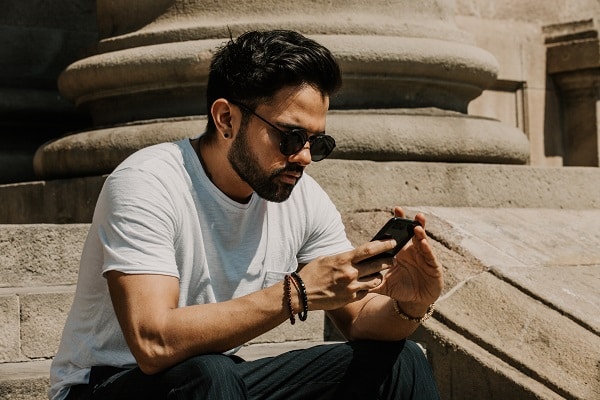Health and social media have a complicated relationship. Social media can be used to spread health information and promote healthy behaviors. However, social media can be used to spread misinformation and harmful rumors. This article will take a look at how health and social media intersect and explore the pros and cons of each. It will also provide tips for staying safe online when it comes to your health! That way, you can make the most of social media while protecting your health.
Contents
- 1 Information And Social Media
- 2 The Pros Of Health And Social Media
- 3 Spread Awareness About Health Topics
- 4 Promote Healthy Behaviors
- 5 Provide Support And Information For Those With Chronic Illness
- 6 The Cons Of Health And Social Media
- 7 A Source Of Misinformation
- 8 Negatively Affect Mental Health
- 9 Privacy Concerns
- 10 Health And Social Media Intersect In Many Ways
Information And Social Media

In the age of social media, we are constantly bombarded with information from a variety of sources. While this can be a good thing, as it allows us to be more informed and connected than ever before, it can also be overwhelming. You are constantly inundated with updates, notifications, and alerts, and it can be difficult to find the time to filter through all of the noise.
This is why it is important to be selective about the sources of information that you follow. You should seek out sources that are reliable and trustworthy and that provide you with the information that you want and need. By being more selective about the information you consume, you can help reduce the overwhelm and better focus on the things that matter most.
The Pros Of Health And Social Media
There are several ways in which health and social media can intersect positively. For example, social media can be used to:
Spread Awareness About Health Topics

In recent years, social media has emerged as an important tool for spreading awareness about health topics. Platforms like Twitter and Facebook allow people to share information and connect with others who are interested in similar topics. This can be especially useful for rare or little-known conditions, as it can help connect individuals who might not otherwise be able to find each other.
In addition, social media can help reach a wider audience than traditional media outlets and can be a powerful tool for promoting healthy behaviors. For example, hashtags like #30DaysOfYoga or #10MinuteWorkout have encouraged people to adopt healthier lifestyles. Ultimately, social media provides a unique opportunity to reach a large number of people with important health information.
Promote Healthy Behaviors

Social media can also be a powerful tool for promoting healthy behavior. By sharing information and stories, social media can help raise awareness about the importance of good nutrition, regular exercise, and other healthy habits. In addition, social media can provide a sense of community for those trying to make lifestyle changes. For example, many online groups are dedicated to helping people lose weight, quit smoking, or eat more nutritious meals.
By connecting with others facing similar challenges, people can find motivation and encouragement to stay on track. Social media can also connect people with professional resources, such as health coaches or dietitians. Ultimately, social media can be a valuable asset in promoting healthy behavior.
Provide Support And Information For Those With Chronic Illness

For many people with chronic illnesses, social media can be a valuable source of support and information. Online forums and groups allow people to share their experiences, ask questions, and offer advice. In addition, social media can be a great way to connect with others who are going through similar challenges. Knowing you are not alone can be a huge source of comfort.
In addition to offering support, social media can also be a great resource for finding information about chronic illnesses. Now, numerous blogs and websites are dedicated to providing tips and resources for those living with chronic conditions. This information can be vital for helping people manage their symptoms and live more full lives. So, next time you log on to your favorite social media site, take a moment to think about how it might be helping those with chronic illnesses.
The Cons Of Health And Social Media
While there are many ways in which health and social media can intersect positively, there are also some potential downsides. For example, social media:
A Source Of Misinformation

Social media has become one of the most popular sources of information in recent years. Unfortunately, it can also be a source of misinformation. Health is a particularly sensitive topic, and false or misleading information can have serious consequences. One way that social media can spread health misinformation is through unverified sources. Anyone can create a social media account and share information, regardless of whether or not they are an expert.
As a result, it can be difficult to know who to trust. In addition, social media platforms are often geared towards engagement, meaning inaccurate or sensationalist content is more likely to be shared. This can create a dangerous echo chamber, in which people only see information that supports their existing beliefs. To protect yourself from health misinformation, it’s important to be aware of these risks and to fact-check any information you see on social media.
Negatively Affect Mental Health

Most people use social media to stay in touch with friends and family, but it can harm mental health. Studies have shown that excessive use of social media can lead to feelings of isolation, self-doubt, and anxiety. It can also trigger symptoms of depression, such as low self-esteem and loss of interest in activities. In addition, for some people, social media can cause sleep problems and difficulty concentrating.
The constant comparisons that users make between their own lives and the “perfect” lives that they see online can also be damaging to mental health. So while social media can be a useful health tool, it is important to use it in moderation and to be aware of the potential negative effects.
Privacy Concerns

With all the different communities and health care professionals online, there has been a growing trend of people sharing their health information online. Whether it’s posting about a recent diagnosis on Facebook or tweeting about a new workout routine, social media has become a platform for people to share their health journeys. However, this trend raises important questions about privacy and consent. When someone posts about their health on social media, they share sensitive information that could be used against them.
For example, if an insurance company sees that someone has posted about a chronic illness, they could use that information to deny coverage. Employers could also use social media to screen potential employees with preexisting conditions. As more and more people share their health information online, it’s important to consider the implications of doing so. Privacy concerns are significant downsides of how health and social media intersect.
Health And Social Media Intersect In Many Ways
Health and social media can intersect in both positive and negative ways. While social media can be a useful tool for connecting with others and sharing information, it’s important to be aware of the risks. That doesn’t mean you should avoid social media altogether, but you should be mindful of how you use it. If you’re concerned, consider talking to a healthcare professional before sharing any information online. Remember that you always have the power to control how you use social media, and you can choose to use it in a way that is healthy for you.


